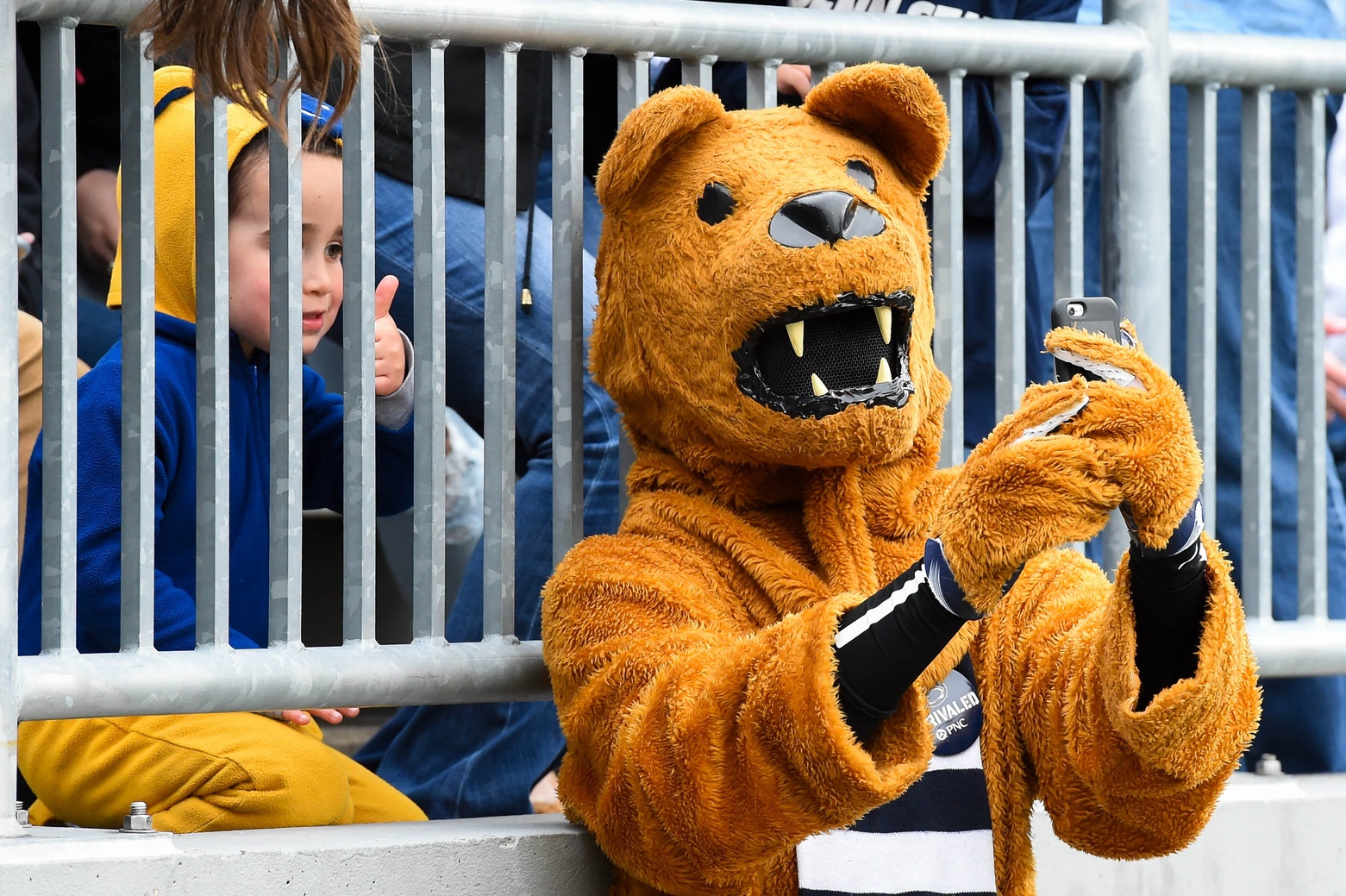
And The Band Played On: Penn State Sidestepped Another Round of Unwanted Publicity
Editor’s note: Phil Keidel is an attorney, though he doesn’t practice criminal law.
Penn State football was always too big to fail. And, just a few short years after crippling NCAA sanctions and a few silly calls for the program to be shuttered forever, boy, are they ever back.
Last Saturday’s 52-0 hammering of the Akron Zips has the Nittany Lions ranked fourth in the nation by the Associated Press. Happy times are here again in Happy Valley. The fans are back to cheering wildly and the Blue Band is cranked up.
But maybe the happiest time in recent memory for the University itself came the day before.
Friday disseminations of potentially controversial and newsworthy developments are pretty standard anymore. If you can hold the news out until the afternoon, even better.
So it was no surprise that, in the rarest of “let’s drop this here while no one is looking” moves, the Centre County Magisterial District Court chose the Friday afternoon before the Labor Day weekend to issue a series of rulings on the charges stemming from the death of Penn State student Timothy Piazza on February 4. From the Reuters article:
A judge on Friday threw out the most serious charges of involuntary manslaughter and aggravated assault filed against 16 Pennsylvania State University fraternity members in the alcohol-fueled hazing death of a 19-year-old prospective member.
Members of the Beta Theta Pi fraternity still face lesser charges in the death of Timothy Piazza, who died on Feb. 4 after playing a drinking game at the fraternity house near campus in State College, Pennsylvania.
The prosecutor failed to present enough evidence to support a trial for eight of the fraternity members on felony charges of aggravated assault and misdemeanor involuntary manslaughter, Centre County Magisterial District Judge Allen Sinclair found.
In Pennsylvania, “involuntary manslaughter” is applicable when “as a direct result of the doing of an unlawful act in a reckless or grossly negligent manner, or the doing of a lawful act in a reckless or grossly negligent manner, he causes the death of another person.”
Judge Sinclair did not explain the rationale for dismissing the involuntary manslaughter charges. That’s a shame; it would have been very interesting to hear how he came to the conclusion that none of Piazza’s 16 “brothers” acted “in a reckless or grossly negligent manner.” There was at least a colorable option to rule that they did act in such a manner – but that their recklessness and/or gross negligence did not cause Piazza’s death.
“Aggravated assault” is applicable in this context when a person “attempts to cause serious bodily injury to another, or causes such injury intentionally, knowingly or recklessly under circumstances manifesting extreme indifference to the value of human life.”
The Court’s rationale for dismissing the involuntary manslaughter charges was provided by the moon door in the statute whereby the behavior has to actually cause the death. Not so with aggravated assault, though. The Commonwealth only needed to prove that the behavior caused serious bodily injury in a reckless manner and with an extreme indifference to human life.
Back to that Reuters article:
Piazza, a student from Lebanon, New Jersey, died two days after he attended a party that featured a drinking game called “The Gauntlet.” Piazza suffered fatal injuries after drunkenly falling several times, including twice down a flight of stairs.
Prosecutors say the fraternity brothers failed to summon medical help for hours, despite obvious signs that Piazza was unwell.
That last bit is obviously key, and while prosecutors say many things in the name of winning convictions, the national coverage of this case strongly suggests that the prosecution was not making this sound worse than it was.
It really was that bad.
Centre County’s District Attorney, Stacy Parks Miller, has indicated that she will re-file many of these dismissed charges. Maybe she will. But, as noted in a recent New York Times article, “(t)he Penn State case is among a number of tougher prosecutions that have tried to hold fraternity members and others criminally liable for college episodes that have in the past been seen as tragic — but not criminal.”
Seeing the most serious charges dismissed is a win for the defendants and the university, which could certainly do without its students carrying manslaughter convictions.
For the defendants’ part, their position on all of this might best be summarized by hired gun attorney Theodore Simon. “This is a clear and unmistakable signal that the Commonwealth’s case, with respect to those charges, was absolutely and unequivocally eviscerated,” said Simon.
The Court’s initial ruling, in the words of attorney William Friedlander, “certainly is going to make (prosecutors) think twice” about re-filing any of the dismissed charges. “(E)specially in that county,” he added.
If we are all being honest with each other, PSU would almost certainly just as soon see all of these former acquaintances of the deceased either quietly exonerated or quickly given plea deals on the lesser charges (hazing, providing alcohol to a minor, etc.) that the Court left in place. Sure, there’s almost certainly a wrongful death suit coming, but Penn State has plenty of experience in cutting settlement checks and buying more silence with the money.
The only noise Penn State and its “we’re back, baby!” legion of supporters want to hear is 100,000 fans in Beaver Stadium cheering on the Nittany Lions against Pittsburgh this Saturday afternoon.
And the Blue Band. They want to hear the band, too.





